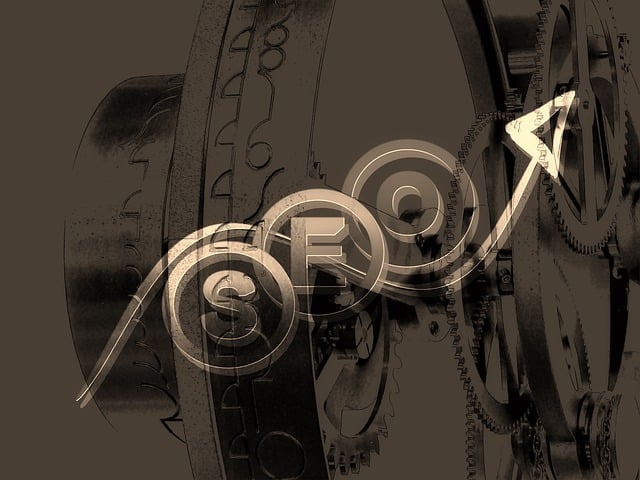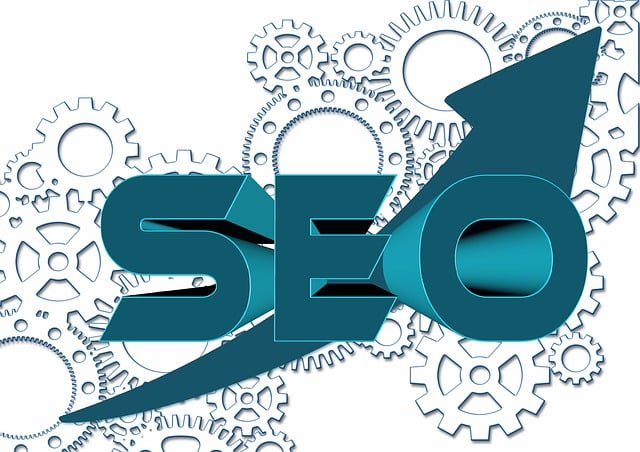E-commerce sites face unique SEO challenges, including high competition from established brands, complex structures, and vast product catalogs. An SEO Agency for E-commerce Websites can overcome these by employing specialized strategies. Keyword research identifies target audience needs, optimizing content and campaigns. Product page optimization enhances user experience and search rankings through strategic keywords, metadata, and visuals. Off-page SEO, including powerful backlink building, boosts brand awareness and targeted traffic. Technical SEO focuses on site speed, mobile responsiveness, and structured data markup for better visibility. Local SEO tactics improve search rankings for local queries, driving foot traffic. Continuous measurement using tools like Google Analytics tracks key metrics to optimize strategies and stay competitive in the dynamic digital marketplace.
In today’s digital era, a robust online presence is paramount for e-commerce success. As businesses navigate the competitive landscape of e-commerce, leveraging expert SEO strategies becomes a game-changer. This comprehensive guide delves into the unique challenges and opportunities of optimizing e-commerce websites for search engines. From keyword research targeting the right audience to on-page optimization, off-page strategies, technical SEO, local reach, and measurement techniques—discover how a top-tier SEO agency can transform your online store into a powerful sales engine.
Understanding E-commerce SEO: The Unique Challenges and Opportunities

E-commerce sites face distinct SEO challenges compared to traditional content-heavy websites. The primary hurdles include high competition from established brands, a constant need to optimize product listings for search engines, and managing the vast number of products and categories. Each e-commerce platform has its own unique URL structure and data, which can complicate indexing efforts. Moreover, with a focus on visual appeal and user experience, ensuring optimal loading speeds and mobile responsiveness is crucial.
However, these challenges also present opportunities for strategic SEO growth. A specialized SEO Agency for E-commerce Websites can leverage rich keyword data from shopping queries, implement effective schema markup for products, and optimize site structure to enhance crawlability. By integrating SEO best practices into the core of e-commerce operations, businesses can increase product visibility, drive targeted traffic, and ultimately boost sales.
Keyword Research for E-commerce: Targeting the Right Audience

Keyword research is a cornerstone of any successful SEO strategy, especially for e-commerce websites. An SEO agency for e-commerce will employ sophisticated tools and techniques to uncover valuable insights about your target audience. By understanding what customers are searching for, you can tailor your product offerings, content, and marketing campaigns to meet their exact needs. This precision targeting ensures that your website appears in relevant search results, driving more qualified traffic and increasing the likelihood of conversions.
Effective keyword research involves identifying not just broad terms but also long-tail keywords—phrases that are more specific and often reflect user intent better. For e-commerce, this might include product names, brand terms, or highly specific queries related to a niche interest. By incorporating these into your content strategy, you can establish your website as an authority in its niche, further enhancing its search engine visibility and attracting the right audience.
On-Page Optimization: Enhancing Product Pages for Better Rankings

Optimizing product pages is a crucial aspect of on-page SEO for e-commerce websites, and it plays a pivotal role in improving search engine rankings. A top-performing SEO agency for e-commerce websites understands that each product page should be tailored to deliver an exceptional user experience while incorporating strategic keywords and metadata. Well-optimized product descriptions, high-quality images with alt tags, and clear, compelling titles are essential elements that drive both click-through rates and search engine algorithms.
By enhancing these on-page elements, e-commerce businesses can effectively communicate the value of their products to potential customers. This strategy not only increases visibility in search results but also encourages longer user sessions, reducing bounce rates. As a result, search engines recognize these pages as valuable resources, leading to improved rankings and increased organic traffic for the website.
Off-Page SEO Strategies: Building High-Quality Backlinks for E-commerce Success

Off-Page SEO is a powerful tool for e-commerce businesses to enhance their online visibility and drive sales. One of the most effective strategies in this realm is building high-quality backlinks. A reputable SEO Agency for E-commerce Websites understands the importance of acquiring links from authoritative and relevant sources, which can significantly boost a site’s search engine rankings. By securing backlinks from well-regarded websites within the e-commerce sector or related industries, online stores can establish themselves as trusted resources for potential customers.
This process involves a strategic approach to outreach, content creation, and guest blogging to earn natural backlinks. An SEO expert will identify industry influencers, relevant blogs, and forums where they can promote the website’s content, ensuring it aligns with the target audience’s interests. This strategy not only increases brand awareness but also directs targeted traffic to the e-commerce site, leading to improved conversion rates and a stronger online presence.
Technical SEO for Speed and Performance: Optimizing for Mobile and Search Engines

For an e-commerce website to thrive, it’s essential to prioritize Technical SEO, focusing on speed and performance optimization. This involves ensuring your site loads quickly across all devices, especially mobile phones, which drive a significant portion of online sales. A top-notch SEO agency for e-commerce websites understands the importance of these factors. They will employ strategies like image compression, leveraging browser caching, and implementing a content delivery network (CDN) to reduce page load times.
Mobile optimization is crucial as search engines favor mobile-friendly sites. With the majority of users accessing online stores through smartphones, a responsive design that adapts seamlessly to different screen sizes becomes vital. Additionally, structured data markup helps search engines understand your product pages better, leading to improved visibility in rich snippets and a higher click-through rate.
Local SEO for E-commerce: Reaching Customers Near You

In today’s digital era, an SEO agency for e-commerce websites is essential to ensure visibility and attract local customers. Local SEO plays a pivotal role in helping online stores connect with buyers in their vicinity. By optimizing website content with location-specific keywords and implementing Google My Business listings, businesses can enhance their search rankings on local queries. This strategy allows potential clients searching for nearby products or services to discover the e-commerce store effortlessly.
Furthermore, integrating local references and reviews throughout the site adds credibility and builds trust with customers who are looking for a tangible connection to the business. Effective local SEO strategies enable e-commerce websites to stand out in competitive markets, encouraging foot traffic and fostering stronger relationships with the community.
Measuring and Analyzing E-commerce SEO Results: Tools and Key Metrics

Measuring and analyzing e-commerce SEO results is a pivotal step for any successful online business. It allows an SEO agency for e-commerce websites to understand the effectiveness of their strategies and make data-driven adjustments. Tools like Google Analytics, Search Console, and SEMrush provide valuable insights into key metrics such as organic traffic, click-through rates (CTRs), conversion rates, and bounce rates. By tracking these metrics over time, businesses can identify trends, pinpoint areas for improvement, and ultimately enhance their search engine rankings.
For instance, a rise in organic traffic indicates effective keyword optimization and content strategies, while low CTRs may signal the need to refine meta titles and descriptions. Conversion rates offer a direct measure of SEO success, as they show how well the website is converting visitors into customers. An SEO agency can leverage these tools to not only assess current performance but also predict future trends, ensuring that e-commerce websites stay competitive in a dynamic digital marketplace.
